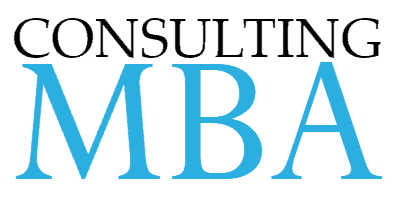Summary
Credibility is how decisions are made on whether to hire or even consider a marketing consultant. In an industry with so much competition between other consultants, freelancers, and marketing agencies, you need credibility to be something that differentiates you.
Easier said than done. In this video, I offer multiple ways that you can show credibility and an action item to take with you so that you have an organized way to build on and leverage elements of your credibility.
Transcript
Hey, David Bradley here. And I want to talk to you a bit about credibility as a consultant and marketing consulting, specifically as an area where there is just a complete flood of marketing consultants. So you have to stand out and there’s different ways to do that. There’s different building blocks to actually being able to stand out, but one of them is credibility. Can I trust you as a client to actually deliver on what you’re saying? So let’s touch on a couple of the areas that you can look at for credibility to show them credibility can be through the clients that you have worked with. It helps when they’re notable clients. It helps when they’re very much relevant to the prospective client. So if it’s notable, obviously a big brand is great to have on the resume. If you’re trusted by an industry leader than the rest of the industry is going to trust you a bit more as well.
Other than that, it can also be the number of clients that you work with. So if you can reference working with a hundred clients before and this kind of campaign, well, you must have a lot of experience in that. So there’s credibility that’s earned. It could simply be very similar clients. So maybe they aren’t notable at all. And maybe it hasn’t been a hundred, but if you can point to, we worked with company X, Y, and Z. And in each of these companies, we help them with the same kind of situation. And Oh, by the way, they’re in the same industry. And Oh, by the way, they were about the same size and they had the same kind of objectives when you’re able to connect the dots like that. For the prospect, they’re able to trust you much more because you have the track record.
Doesn’t work for everyone because many people are just starting out. So there’s other options as well, but pick these credibility points based on what fits you. Right? Another thing is if you serve on a board or a committee, it doesn’t necessarily mean that you’re serving in a marketing capacity, but in any capacity, if you just start out within an unpaid position with a nonprofit, that is something that you one, okay, we’ll gain a lot of skills from. So it’s definitely something I would recommend just for your own professional, personal development too. You gain some of the intangible skills. Aside from the business skills, the confidence, the communication skills, three, you get great networking possibilities out of it. Yeah. And for you to get the credibility of saying, I am an advisor to I’m on the committee for whatever it might be, but if you can join a board, that’s a great way to begin.
I started with nonprofit committees, nonprofit boards, my alumni association from my Alma mater. I started in those ways until I can improve my track, record my credibility to get higher positions from there. Teaching is another credibility marker. So if you will be able to teach at a college level that’s a great way to show that you at least have the intellect to what you’re doing professionally and teaching can be very time intensive. And I have done it myself. And I think because it was very enjoyable for me to do it was something that was worthwhile. If you don’t like teaching, then stay away because it’s not going to help you tremendously. It doesn’t pay very much, but there is a certain rigorous nature of having to teach someone else about marketing that forces you to reinforce your own thinking to be clearer in it.
And inherently when people know that you’re teaching, they know that it isn’t just a side gig that anyone can do. There is actually a lot of work that goes into it. There is a level of intellect that’s required to do it. So that boosts your credibility as well. So, you know, it could be the clients that you work with. It could be the service that you provide to boards and committees. It could be the teaching experience, but something more controlled, something that is more of an introverted kind of activity is publishing because we look to people who stand in front of classrooms and people who write books and articles as authorities, right? So if you can publish a book or publish an article, a series of articles on a certain topic, you’re going to raise your credibility. And it isn’t necessarily about just producing more and more in marketing.
A lot of people just think, well, I need to build backlinks. So I need to publish as much as possible as a professional consultant expert thought leader. It’s really important with the quality of the work, and if you can put some good thought leader oriented pieces together, then there are pieces that should be timeless and that you can reference. And so that they add to your credibility, whether someone just happens to stumble upon them, or if you’re actively putting them out there. Speaking is another Avenue. So think like teaching, but instead of getting in front of a classroom again in front of professional organizations, associations going up to events and professional speaking can be great because you get paid for it. Sometimes, the issue is that it’s not so easy to get paid for it. And especially in marketing, there’s a lot of competition.
So you really need to stand out in some way. And if you publish a book that could be your hook to stand out, but speaking can be a great way to not only build your credibility, but to network as well. If you go and speak to the local circuit, if that works for you, if that, if you’re focused on your local market, go to the rotary clubs, go to the local networking groups, do a pitch for a presentation, whether that be 10 minutes or an hour long. And if you can get out there and, and do that it, again, not only reinforces your own thinking, but yeah, exposing you to more people. And it’s something that you can reference later to say, I’ve spoken to these organizations, awards and recognition always are something to hold on to a few, have any of those achievements in your background?
I think that is something I would just mention, not because you can necessarily go out and plan to win that certain award there’s, you know, awards you can go after like that. Not all of them are usually worthwhile. It’s usually as a result of good efforts elsewhere, but if you do have some kind of recognition in your background, make sure you don’t just, you know notice it when it’s here, but you hold onto it as something you can reference in the future as well. That was a shortcoming for myself. There’s a lot of achievements I’ve collected that I just left on the back burner and kind of forgot about myself until I revisited later and said, Oh yeah, I should probably start to share that with clients testimonials are always good. It could be a personal testimonial about you, or it could be a business testimonial.
Meaning in that testimonial is the client speaking about how wonderful it was to work with David as an expert advisor or how wonderful it was to work with BBG, the consulting firm, two different paths. I wouldn’t pick one over the other necessarily, unless you have a very clear idea right now of do you want to promote the individual or the firm itself, in which case you might want to cater to one side or the other, but they all help. They all certainly help. So keeping a good track record of those, not just letting them sit on Google reviews or wherever they might land are LinkedIn, but keeping that list together. So you can always go back and dip into it as you need to references, not typically super common, if you’re doing sales right, then you don’t really get asked for references, but there might be something that you want to keep a record of yourself, of who am I go to people who will be able to speak to what I’m capable doing.
Interviews. Anytime you can be interviewed is an opportunity for more exposure. It’s marketing yourself, but it’s also showing again your thinking process, your intellectual capital, it’s a way to stand out. And it’s something you can reference. I’ve been featured on here, here, and here, whether that is written form or video interviews or what have you. But again, it’s something where you get some credibility because not just anyone is interviewed, it’s typically reserved for someone who has something special to say, another thing that’s in your control is quotes. And this is not quotes from others. That would be like a testimonial, but quotes that you generate yourself about your expertise. So if you can develop a list of quotes and this is something that’s useful, if you have a media kit, if you’re pitching yourself as a speaker or someone to be interviewed, having some quotes from yourself sounds very narcissistic.
And it feels kind of narcissistic to think about positioning yourself in that way, unless you fully embrace that you are a thought you are an expert, but it is something that is actually very helpful because it makes whoever’s promoting you. It makes their job much easier. And it gives you ways to position yourself and share your thinking in the world. And that’s attributed to you and not just a rehash of someone else’s thoughts and not just republishing what someone else has said, but it’s original content that you can share. So we talked about a lot there. I think the one thing that people typically think about with credibility is the media. And there’s definitely a place for that being featured in any publication is helpful to credibility. It’s just not the only way, but just to address that quickly as well, the media, I think, is something you should look at as a ladder for you to climb.
There’s, there’s the no name blog out there that you could be on. And there’s Forbes in those leading publications that you’d like to be on. And there’s a lot in between, but typically to make that progress and to be featured in higher and higher level publications, you’re going to have to prove yourself in some capacity. So if you have the book to reach out on, if you had a great presentation at an event, you can speak to that. But overall, if you’re looking at just media mentions and being featured, having your own written content, you can start with those lower level publications as a means for proving yourself. If they validate you, it’s easier to get into that, no name then Forbes. Then over time, you just grow and expand based on reaching out to a slightly higher level publication and then a slightly higher one higher one higher one.
And I always support that mess methodology because it works better. And unfortunately you have to improve your craft along the way, because you don’t want to be fortunate enough to land a great opportunity and then fall short. So be okay and comfortable with the idea that you’re going to have to start somewhere with a relatively unknown publication and take it from there. So as a quick recap of all that, because we covered a lot, there’s notable clients, the number of clients you’ve worked with highly relevant clients that you might want to reference. There’s the service to boards and committees to nonprofits, to anything that you can show that you’re not just giving back, but you’re also refining and sharing your business acumen. There’s the teaching experience or the speaking experience professionally there’s publishing books, publishing articles, being interviewed on podcasts on radio shows, whatever it might be.
It’s the awards and recognition that you collect over time, not letting them just pass, but making sure you can reference them as needed the testimonials that you gather for yourself personally, or for the organization your organization, there’s having the list of references ready, having anything statistical that would be helpful about your reach, about how many different publications you have been featured in about how many different countries that you’ve had your book sold in, but how many States or countries you have clients in, whatever could be an interesting fact and the collection of all of those things. That’s important because when you do that, you have a system that you can follow. You have something you can build on, and anytime you have marketing or sales material to work on, you can reference this list and make sure that you’re using the right combination of credibility factors, right?
So in doing that, make this an action step to build out that credibility pack and checking those boxes of each area that I mentioned, if you have no testimonials right now, keep that heading in there because you’re going to build onto it later on. You’re going to add testimonials as you get them. Same for any quotes. If you’re not ready to come up with your own quotes, keep the quote section in there. You’ll build that over time, but this is something you can return to build on, expand on use for your business. So when someone comes to you as a consultant and there’s other consultants, they’re considering you’re the most credible source.
Also from Consulting MBA
How to Increase Your Consulting Fee With Existing Marketing Clients
Here’s how to raise your rates (and how much) with a plan and schedule so it isn’t a one-time occurance.
Should You Advertise Your Consulting Firm?
Is it worth putting advertising dollars behind your own consulting business? If you do advertise, what makes sense, and what doesn’t? Listen in to this five-minute breakdown.
Building A Support System As A Marketing Consultant
Entrepreneurship can be surprisingly lonely and draining. But so rewarding. We just need to make sure to take care of ourselves along the way.




